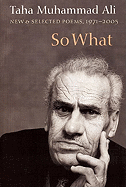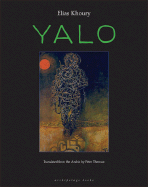


The United States, despite its multicultural heritage, lately has not been considered to be a hotbed for translated fiction. If memory serves, the percentage of books published that are translated into English is less than 3% of the total published annually. Since the U.S. is the world's largest publishing market, such a tiny percentage, when compared to the higher percentage of translated fictions appearing in many of the non-English language markets across the globe, has been a cause of consternation among global fiction aficionados in the U.S., as well as derision from others, including the Secretary for the Nobel Prize in Literature committee. Lately, there have been efforts to improve the availability of fiction from across the globe, via programs such as Reading the World. In this article, I plan on devoting a little bit of coverage to six books released this year that are among the best fictional works I have read this year. In addition, two other works of translated fiction will appear in my next post on 2008 short fiction. Finally, before some question its exclusion: Yes, I did read Roberto Bolaño's 2666 this year. Yes, I thought it was brilliant. Yes, it would have been a strong contender for my overall #1 read for 2008. However, I read it in Spanish and since it was released in its original idiom in 2005, I decided not to cover it with the 2008 releases. That being said, if you haven't read it yet, in whatever language is your native one, why not go out and read it now?
The six books pictured here are by authors from (in picture order) China, Poland, France, Serbia, Palestine/Israel, and Lebanon. Three of the books are speculative fiction to some degree, while one is a collection of poetry, another is a metaphor-laden account of a country's blind groping towards more political freedom, while the final book simply is a terrifying account to read of truth and remembrance. Outside of these books being translated fictions of some quality, there is nothing that unifies these books into a solid group; each contain its own idiom of narrative expression.
The first book listed, Ma Jian's Beijing Coma, uses the quasi-vegetative state of a shot Tiananmen Square protester, Dai Wei, and his coma-induced remembrances of his past (and his family's treatment of his body as it lies unconscious for over a decade) as a metaphor for China's changes since that massive 1989 protest. Ma Jian, himself a political refugee from China's Communist government, takes a lyrical approach to telling a powerful story of change occurring that isn't always congruent with his characters' desires for greater civil liberties. It is a book that I suspect will make several year-end lists; it has made mine.
I have already reviewed Polish author Andrzej Sapkowski's Blood of Elves, so I'll just quote a bit from the end of that review:
The dialogue is interesting and at turns bitter and hilarious. Ciri and Yarpen's personalities are shown via the way each addresses the other, one being inquisitive and eager to learn while the other is embittered and yet ready with sharing his own sarcastic take on the world. We learn about how the various races are not getting along, how rhetoric seeks to both divide and unite groups, as well as what is transpiring around the travelers. In short, it is a microcosm of the unfolding events and serves to make the reader focus not just on the plot actions, but also on the thematic underpinnings of the story. Sapkowski accomplishes much with scenes such as these and while Blood of Elves truly is a set-arranging opener that doesn't advance the main plot too rapidly, these undercurrents that Sapkowski explores serves to create an opener that is exciting and one that plays off of the tensions introduced in the story collections and the opening chapter, creating the promise of a rewarding payoff. One of the better opening sequences to a multi-volume fantasy series that I have read in years. Highly recommended.Maurice Dantec's Cosmos Incorporated translated well from its original French. It is a SF tale involving a post-apocalyptic setting, a memory/identity problem for the protagonist, and a metaphysical look at the world. Dantec mixes these elements together well, creating a tale that was enjoyable, leaving me hopeful that more of his fiction will be translated into English in the near future.



Serbian author Zoran Živković has been a favorite of mine ever since I read the 2004 English translation of his The Fourth Circle. Although most of his stories that I've read have been short, thematically-connected "story suites," The Last Book is a suspense novel about why people are dying after they open a particular book. As is fitting for his tales, Živković's tale is in turns surreal and poignant, with a twist ending that, while not surprising for those familiar with his writing, is a fitting conclusion to a playful mystery.
Palestinian poet Taja Muhammad Ali's collection of translated poetry, So What, varies in tone and style. Ali covers not just the expected topics (the plight of the Palestinians in the West Bank, Gaza Strip, and elsewhere in the Arab Middle East), but he focuses more on the little things that can made a harsh life just a bit softer. His poetry, even in translation, is evocative, keening even at times, making for a strong emotional connection between the Reader and the subjects of Ali's Text.
Lebanese author Elias Khoury may have written this year's most disturbing novel for me; it certain ranks among the very best fictions I have read this year. Here is an excerpt from my short review of Yalo:
Lebanese writer Elias Khoury's latest novel to be translated into English, Yalo, opens with an interrogation. Yalo, a former paramilitary soldier during Lebanon's tragic civil war of the 1970s and 1980s, has been accused of raping a female acquaintance of his. The novel revolves around the process in which Yalo deals with certain shady events (not necessarily inclusive of the rape accusation), the attempts by his interrogators to beat more confessions out of him, and the psychological effects of such physical and emotional traumas.
Khoury does not take short cuts here, either in detailing the torture methods (very brutal, such as the case of the cat trained to swipe its claws across the genitals of the prisoners) or with Yalo's confrontration of his past and his conflated understandings of the present and what his interrogators want from him. While some reading Khoury's book might be tempted to make some comparison to Franz Kafka's The Trial, Khoury goes even further in exploring the elastic boundaries of Truth and Remembrance, while working in references to Lebanon's bloody past and present. Yalo's narrative, almost always given in the third person-limited point-of-view, shifts from the past to the present and back again, from memories of his relationships with women to thoughts of betrayals, from the understood Now to the imagined Past. It is difficult at times to discern a linear narrative arc, yet Khoury's method of using a fractured narrative to underscore his points about the traumas inflicted by and upon people works quite well.
In reading this novel, I found myself reflecting more and more on my reactions to Yalo's confessions, my thoughts regarding the society that could produce a Yalo and his interrogators, on my interpretations of what was transpiring. What I concluded was this: Khoury has written a rich, dense narrative that flows sublimely. The more one learns about Yalo, the more questions that arise from these revelations. What is truth? Whence the source of such brutality? The way that Khoury explores these issues made for a read, that while never "light" in tone, which was one of the best I have read this year. Highly recommended for those readers who like a "challenging" read and those who want to study an author's technique for revealing psychological duress.
Little else to add to my previous comments, other than it is a damn fine book, albeit rough and harsh to read on occasion.
Hopefully, 2009 will bring even more translated fictions to my awareness (and then, possibly, into yours). This year's group was an excellent, eclectic group, but I suspect that I missed several gems. Anyone have any other translated fictions published in English in 2008 that they think are worth my time and others'?
In a few hours, the 2008 short fiction article will be posted, to be followed by a few list-oriented posts leading up to the ranking of my favorite reads for 2008.










1 comment:
I just read Zoran Zivkovic's 12 Collections & The Teashop yesterday -- it was a Christmas gift -- and I'm still reeling and seeing things in purple today. One of my plans for 2009 is to read more by this author. Wish I had the ability to read him in his own language.
Post a Comment